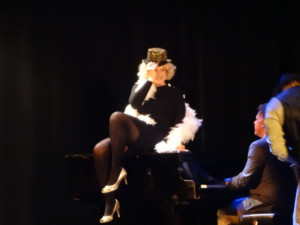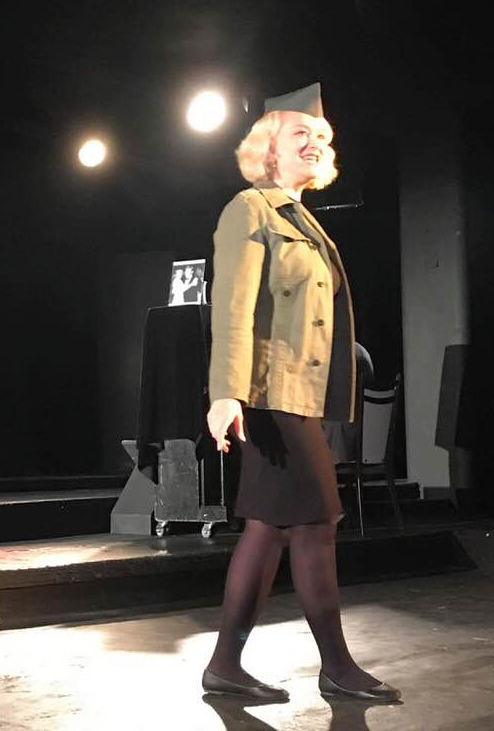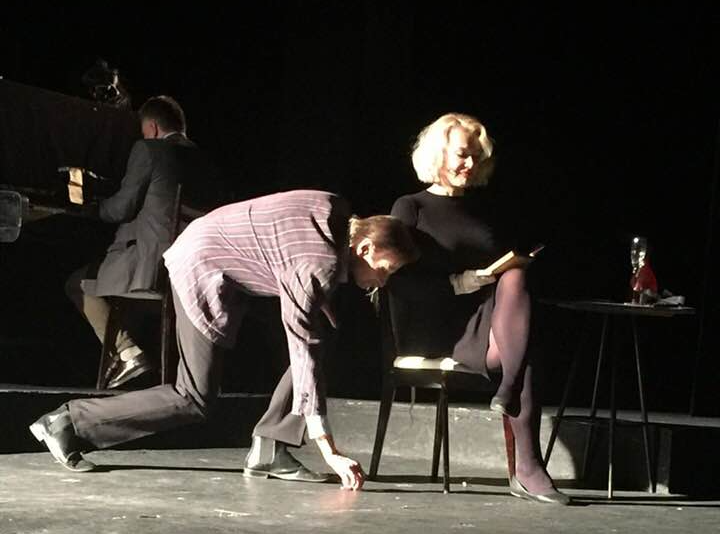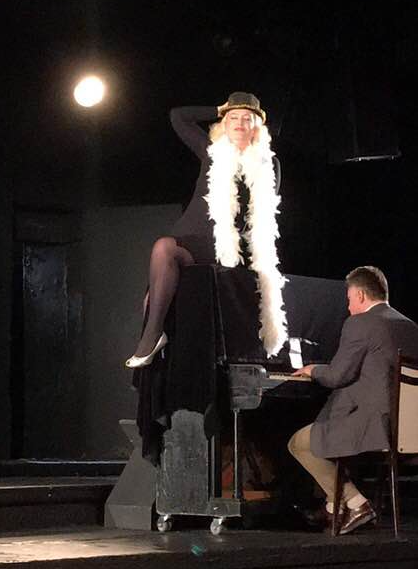Review: MARLENE DIETRICH: THE BLUE ANGEL'S SLEEPLESS NIGHTS at Théâtre Du Nord Ouest

During her inaugural speech for a square named in honor of Marlene Dietrich in the posh 16th arrondissement in 2003, Ms. Beate Klarsfeld said, "Though she's yet to be recognized as such, Marlene Dietrich is truly the female celebrity who dominated the 20th century in the domains of anti-hitlerian politics, the cinematic arts, and women's liberation. In all these areas, she was a driving force. What is the stuff of legend? Is it destiny or just life?"
Luana Kim embodies the legend that is Dietrich in Marlene D: The Blue Angel's Sleepless Nights (Les Nuits Blanche de l'Ange Blue), a play with music that she wrote herself and co-directed with Olivier Bruaux. After starting out on the movie set of The Seven Sinners, where, accompanied at the piano by David Herridge, we see her singing "The Man's in the Navy" with Frédéric Morel as John Wayne (reportedly the only male Hollywood star to refuse Dietrich's advances, saying "I don't want to be another notch in her belt!"), the play jumps forward to the end of her life, where she's left alone with her memories in a wheelchair. From then on, most of the other songs and scenes are flashbacks that she has in her head, beginning with her audition for the famous movie The Blue Angel directed by Josef von Sternberg.

Other major events include meeting Erich Maria Remarque, the famous anti-Nazi writer who wrote All Quiet on the Western Front and with whom she had an affair in Venice. Remarque, also played by Morel, then took her to Paris, where she had to hide in him in her suite at Hôtel Lancaster, when German ambassadors came knocking. While still in Venice, she had already first glimpsed the soon-to-be great love of her life, the French actor Jean Gabin (Frédéric Thériso), whom she later failed to make into a Hollywood star and who preferred to fight for his own country anyway. Marlene actually followed him back to France, where they had some funny moments, such as when Gabin lampoons Maurice Chevalier, Dietrich's first French, albeit short-lived, lover. Another unportrayed character is President Roosevelt, who dismissed Dietrich's efforts to sell kisses for the war fund (something film stars like Rita Hayworth actually did) as a form of prostitution!

Luana's passion for her character and the deep research she has done on her emanates throughout the piece. Clearly a labor of love, Sleepless Nights might need some tightening, and at times some lightening up. Dietrich's relationships with her mysterious Parisian neighbor, Reyv, at the end of her life and her confidant, the gay French actor Sacha Briquet, are the most touching elements of the play, which would gain by more fully developing these two characters.
This not-to-be-missed, well-acted and superbly documented piece will be back at Théâtre du Nord Ouest September 1, 7, 8, 14 and 21.

Videos
.png)